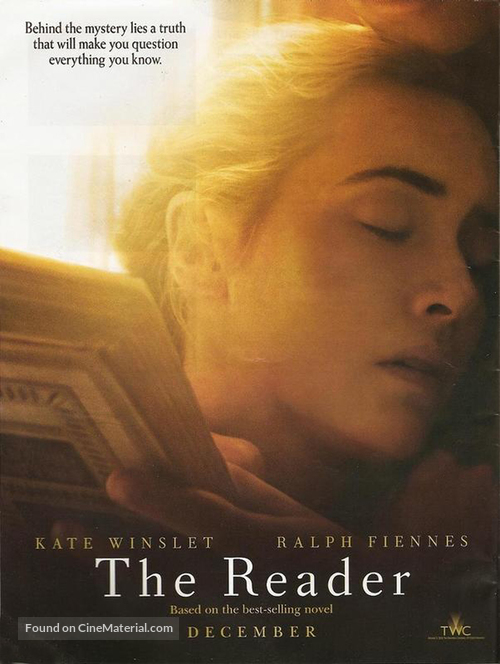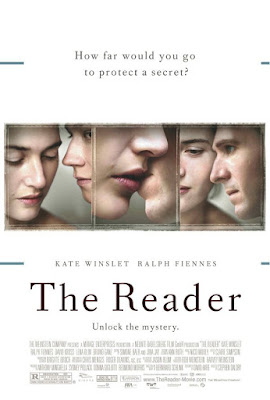


This provoked rebuttals from David Hare and on the letters page: It left a very strange taste in my mouth. Under the gloss of high production value, under the sheen of hardback good taste, there is something naive and glib and meretricious. I can’t forgive this film for being so shallow and so obtuse on such a subject, and I can’t accept it as a parable for war-guilt-by-association suffered by goodish Germans of the next generation. Its full, questionable nature emerges as the narrative unfolds…
#MOVIE THE READER MOVIE#
This was, I admit, a problem I had with the original novel, and the movie treatment has not alleviated it.

In the Guardian, Peter Bradshaw was severely critical in his review:Įveryone involved in this film is of the highest possible calibre, but their combined and formidable talents could not annul my queasiness that the question of Nazi war guilt and the death camps had been reimagined in terms of a middlebrow sentimental-erotic fantasy. I read the book several years ago, and found it a difficult work about which to make a judgement: is it a profound exploration of Germany’s relationship to its past, or is it merely crass? The film has created the same doubts among critics. The central performance by Kate Winslet is worthy of the Oscar, and as always Bruno Ganz is excellent as the law professor. The screenplay by David Hare faithfully renders – and, in key passages, enhances – Bernhard Schlink’s novel. Caught up recentlywith the film adaptation of The Reader.


 0 kommentar(er)
0 kommentar(er)
